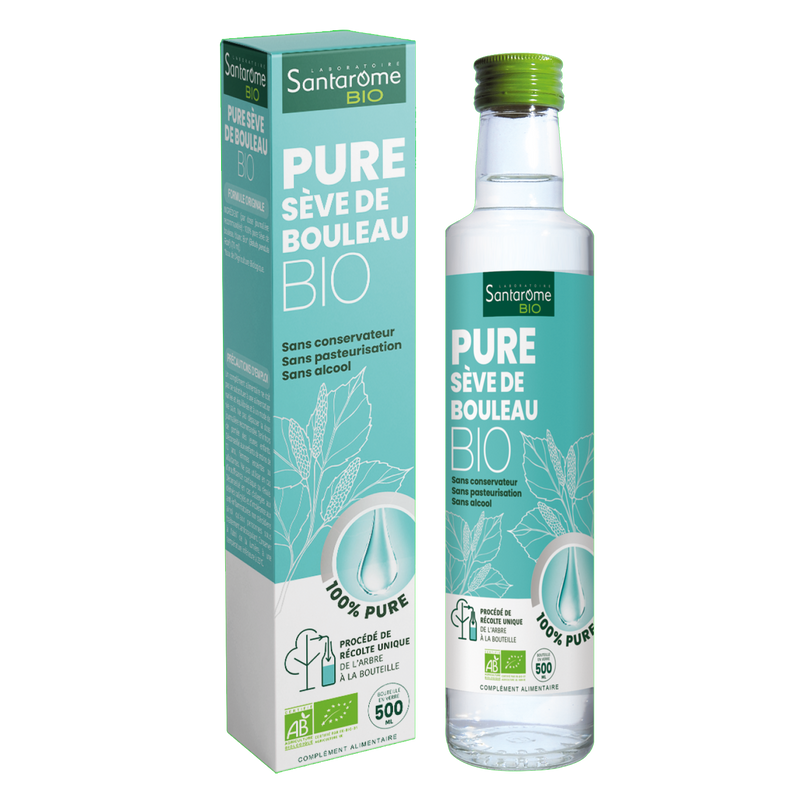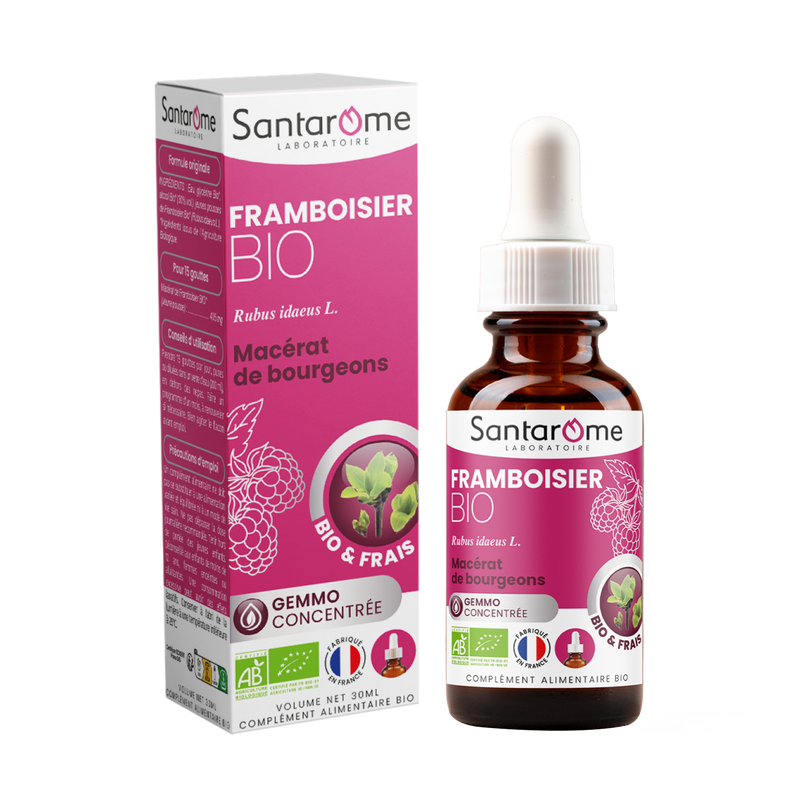Used in gemmotherapy, raspberry bud macerate is a powerful dietary supplement. It has a profound effect on the female endocrine system and is recommended for:
- Hormonal disorders
- Irregular menstrual cycle
- Perimenopause
Santarome'sorganic raspberry bud macerateis an excellent choice for treating hormonal imbalances, irregular cycles, or menopause-related disorders. It also acts as a regulator of the ovarian and uterine spheres. It is 100% organic, preservative-free, and enriched with three complementary buds for enhanced effectiveness.
The dosage is 15 drops per day in a glass of water, between meals, for a 3-week treatment. A one-week break is recommended before resuming treatment.
Fruits: delicious treats and antioxidants
Raspberries are not only delicious, they are also very nutritious. Rich in vitamin C, fiber, and antioxidants (anthocyanins, ellagic acid, flavonoids), they help strengthen the immune system, fight oxidative stress, and support healthy digestion.
They are also low in calories and have a low glycemic index, making them an ideal snack for people who want to balance their diet. Fresh, frozen, or dried, they can easily be added to smoothies, yogurt, salads, or compotes.
















